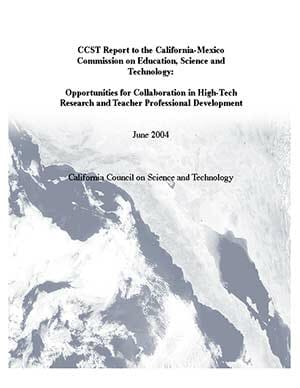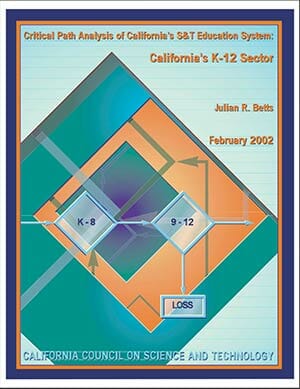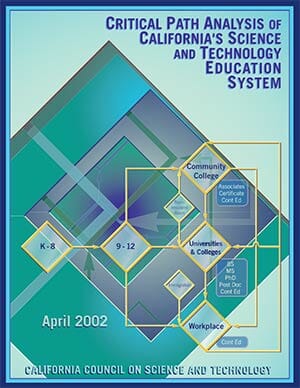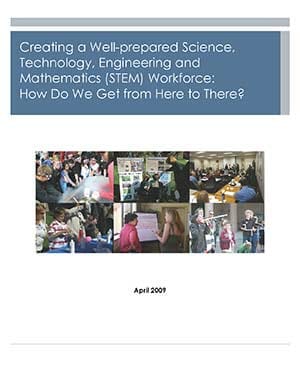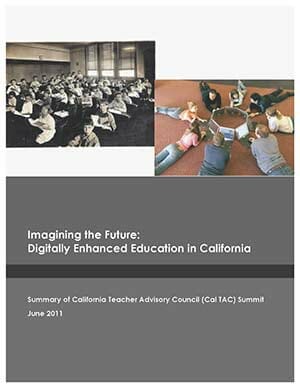Opportunities for Collaboration in High-Tech Research and Teacher Professional Development
Release Date: June 7, 2004 | Last Updated Date: June 7, 2004
This report was initiated in March 2003 by the California-Mexico Commission on Education, Science and Technology, a binational high-level group dedicated to exploring mutual challenges related to science and technology policy areas. The Commission consists of leaders from the scientific communities in California and Mexico, and is jointly chaired by University of California President Robert Dynes and Jaime Parada Avila, the director of Consejo Nacional de Ciencia y Tecnología (CONACYT). Five participants among the nine-member California delegation are affiliated with CCST, including two council members, two fellows (including President Dynes) and Executive Director Susan Hackwood.
CCST was asked to pursue two lines of inquiry:
- How to foster small but important clusters of innovation in high-tech areas in Mexico and address the concern that Mexico loses top research talent to the U.S.
- How to address the lack of qualified science and math teachers in the K-12 systems by providing better, particularly online, in-service support.
To complete the project, CCST worked with the University of California and with officials from CONACYT, the Mexican Ministry of Education, the Mexican Academy of Sciences, and several leading Mexican universities.
Principal findings:
- The most effective way to encourage collaboration is to provide an infrastructure that enables it.
- There are at least 12 internationally competitive graduate programs in Mexico which would be suitable for widespread collaboration with selected California institutions, and probably many more, mostly in biochemistry and molecular biology.
- Professional development systems for K-12 science teachers vary significantly between Mexico and California. Two technology-based programs which could be suitable in both and which warrant further exploration are the California Learning Interchange and Teachscape.
- It is recommended that the Commission take further steps to:
- Create venues to bring people together (high-tech researchers and educators) to discuss the findings in this report.
- Identify funding sources and ways to leverage existing resources to support both efforts.

